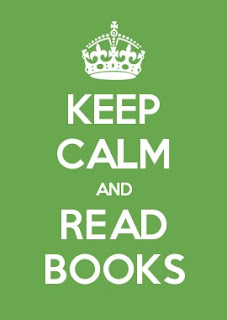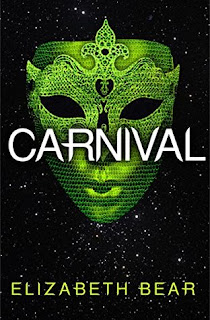I just returned from a two week holiday in the USA. I have travelled to New York a few times, and once to visit a friend in Washington D.C. My motivation was a longstanding desire to see redwoods. As I am not getting any younger, and have a well paying job, and am not afraid of travelling alone, I decided to "just do it" and to travel to California. During those two weeks I was in San Francisco and the Sequoia, Kings canyon, Yosemite and Redwood national parks. The nature was simply phenomenal, but that is not what I intend to reflect on now. Rather, one of my motivations for this travel was a sort of to 'get it over and done with'. What I mean by that is that I am not particularly comfortable with the USA which I have become familiar with on the internet and in social media. I also have a personal notion not to visit countries which have particular politically oppressive practices. A sort of ethical tourism, if you will. I am cognizant that one cannot be too rigid on this standard as there are few countries which are not criticism-worthy (case in point: my own country of Norway and our deportation practices at present). The US, with their current actions to separate and intern children apart from their family is without a doubt on that list of dubious and unacceptable practices. So it was with a certain
holding-my-nose that I undertook this trip. Hence the "get it over and done with" attitude.
I was however acutely aware that I do have a tendency to over-dramatise and certainly as I both think a great deal, do set myself up for both unnecessary fear. Thankfully, I am quite used to being disappointed. In fact, I live so much in my own mind that I have gone my entire life, waiting for that "racist situation" which I could respond to, and thus far been disappointed. Thus far, but I will revert to that.
Now while the physical beauty of California definitely lived up to my expectations and was, well, breathtaking, in an unironic sense, so unfortunately did the aspect of racism and other USian particularities. Bear in mind, furthermore, this was California, not Alabama nor Mississippi. So what was it that I stumbled across?
First, the homeless in San Francisco. I am used to seeing homeless people in Anglo countries. Poverty is by no means unique, but there are somehow always more homeless people on the streets of UK, Canada or the US than in other countries I have been in. San Francisco, however stands out. It did not help that my hotel was just on the streets of choice, but my practice of walking the cities I visit would anyway have exposed me to all of these. As I sit here, I still feel somewhat overwhelmed by the misery. I kept it at a distance there somehow. The last day I was there I was witness both to someone smoking crack as well as someone I suspect was about to take a snort of cocaine.
What I could not fail to notice however, was that probably about nine of ten of the homeless were people of colour.
That was all bad enough, but I also witnessed unambiguous white privilege-going-on-racism in action. An old white man who insisted that a black man in a Peet's Coffee was sitting in "his seat". I do not doubt he would have responded the same way had it not been person of colour, but it was a person of colour. Who was ready to dig in (and I was not surprised at that). I made my feelings known to the white man (told him he was being an arsehole). Nevertheless I did not stay to see how it would turn out. I am at a loss even now to know how best I should have reacted, to be a true white ally. On the one hand, I am so emotional and am afraid of my own reactions, which are rarely useful. On the other, I am sorry that I did not at least wait a bit and make a fuss with the fact that the staff appeared to be taking the side of the white guy and not buy a coffee there.
This should haunt me for a while. I think I would need help (training?) to handle such situations in the future.
Anyway, you can imagine my relief to leave the city, whatever its charms. The next situation which arose however (so much for my anticipation that as usual I was over-dramatising in my own mind that more likely than not, I would not notice much, as is the case in most Western European countries I visit), was a car in the northern Californian city of Eureka. A red car of some kind, which had an affixed antenna-flagpole on it, with two fabric flags fluttering in the wind as it drove. One US flag (one sees enough of those in the US),
but also my first Confederate flag. I wish I could have taken a picture at least, but I was myself driving. Someone went to the trouble of attaching that to their car. Wow. I know how I would feel when I see an old South African flag, and this is without a doubt
even worse. I would feel the same way if I saw a Swastika flag.
It was sickening.
So the US lived up to my worst expectations I am sorry to say. It took me back to my childhood in apartheid South Africa. 😔
On guns...
Additionally, the last weekend before I left, I was trying to put petrol in
the car and was struggling as most of the "gas pumps" require a card
attached to a US zip code to do so. A man who heard me mention I was
from Norway (he has family here) made conversation (and helped me with
the petrol), and we had a short chat. It was the day after the El Paso
and Dayton shootings and we got into a conversation about gun control.
Turns out he was a hunting enthusiast and owns a mere 60 guns himself,
including some so-called assault rifles (so much more humane for hunting
he assured me). He could see there was a problem with access to guns in
the US, and not an especially unpleasant guy at all. It occurred to me that as the owner of literally more than a thousand books, I could understand the attractions of collecting something you are fascinated with. (Let it not be said that I am unfair). Then again, sixty guns which have as their
raison d'être to kill. It is not quite the same.
As it turns out, 55 people were killed by gun violence in the US the two weeks I was there, including the 22 in El Paso and the 10 in Dayton (source:
https://www.gunviolencearchive.org/reports/mass-shooting).
Fifty five.
That is 3,9 people per day I was there.
The nature was simply spectacular and worth the travel. As for the rest, what comes to mind is the assertion I see fairly regularly by leaders in the US when comment is being made about the concentration camps and the such on Twitter who assert: "This is not who we are".
This is exactly who you are.
To quote Bob Gass, a Northern Irish preacher I heard what must be almost twenty years ago: what is not acknowledged cannot be changed.




















